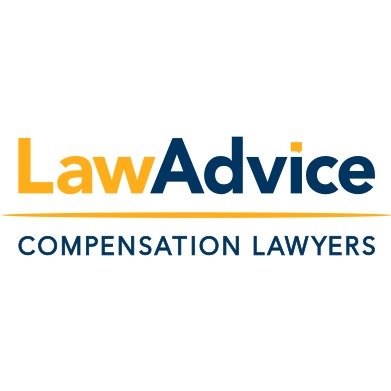Best Construction Accident Lawyers in Wagga Wagga
Share your needs with us, get contacted by law firms.
Free. Takes 2 min.
List of the best lawyers in Wagga Wagga, Australia
About Construction Accident Law in Wagga Wagga, Australia
In Wagga Wagga, Australia, the law pertaining to construction accidents is an essential part of workplace safety and workers' compensation regulations. Essentially, these laws are designed to protect workers who are injured on the job, providing them with compensation for their injuries while also ensuring that employers maintain a safe work environment.
Why You May Need a Lawyer
A lawyer specialized in construction accidents is often necessary due to the complexities of such cases. You may need a lawyer if you're a worker who has suffered an injury at a construction site due to negligence or violation of safety standards and require assistance filing a claim under the workers' compensation system. Similarly, if you're an employer facing a lawsuit from an injured worker, you'll need legal expert representation.
Local Laws Overview
The Work Health and Safety Act 2011 is the primary legislation covering workplace health and safety in Wagga Wagga and New South Wales at large. This law places the primary health and safety duty on a person conducting a business or undertaking (PCBU). They must ensure, so far as is reasonably practicable, the health and safety of workers at the workplace. Workers' compensation is generally provided under The Workers Compensation Act of 1987.
Frequently Asked Questions
1. What should I do if I get injured at my construction site?
First, seek immediate medical attention. Then, report the injury to your employer and complete any necessary paperwork for workers' compensation. It might be beneficial to consult a lawyer to better understand your rights and options.
2. What can I get compensated for if I'm injured on a construction site?
Typically, you can receive compensation for medical expenses, loss of earning capacity, and any permanent impairment. However, the specifics depend on your individual case and the extent of your injuries.
3. Can I sue my employer if I am injured on a construction site?
Generally, you cannot sue an employer for a workplace injury in Australia. Workers' compensation is designed to be a 'no-fault' system. However, unique circumstances may exist, and you should discuss this with a lawyer.
4. What if my employer pressures me not to file a claim?
It's unlawful for an employer to discourage or coerce you from filing a workers' compensation claim. If this occurs, consider seeking legal advice.
5. What if my employer doesn't have workers' compensation insurance?
In Australia, employers, including those in the construction industry, are required to have workers' compensation insurance. If they don't, they may face severe penalties. In such situations, you should seek legal advice to understand your rights and options.
Additional Resources
The New South Wales Government's SafeWork department can provide helpful information about workplace safety standards and regulations. The WorkCover authority of New South Wales is another good source of information on workers' compensation.
Next Steps
If you need legal assistance, consider reaching out to an attorney who specializes in construction accident law. They can guide you through the process of filing a claim, represent you in any necessary legal actions, and help you receive the compensation you're entitled to. In addition, a lawyer can fend off any attempts at retaliation from your employer for filing a claim.
Lawzana helps you find the best lawyers and law firms in Wagga Wagga through a curated and pre-screened list of qualified legal professionals. Our platform offers rankings and detailed profiles of attorneys and law firms, allowing you to compare based on practice areas, including Construction Accident, experience, and client feedback.
Each profile includes a description of the firm's areas of practice, client reviews, team members and partners, year of establishment, spoken languages, office locations, contact information, social media presence, and any published articles or resources. Most firms on our platform speak English and are experienced in both local and international legal matters.
Get a quote from top-rated law firms in Wagga Wagga, Australia — quickly, securely, and without unnecessary hassle.
Disclaimer:
The information provided on this page is for general informational purposes only and does not constitute legal advice. While we strive to ensure the accuracy and relevance of the content, legal information may change over time, and interpretations of the law can vary. You should always consult with a qualified legal professional for advice specific to your situation.
We disclaim all liability for actions taken or not taken based on the content of this page. If you believe any information is incorrect or outdated, please contact us, and we will review and update it where appropriate.








